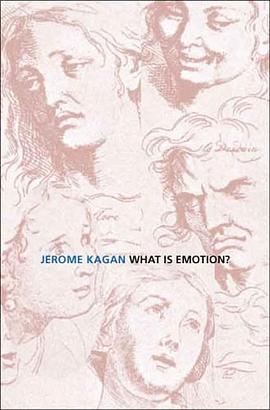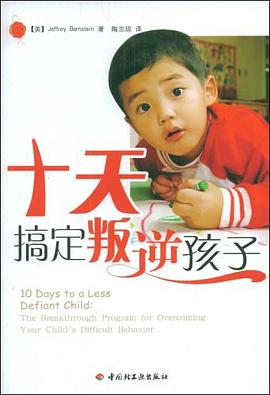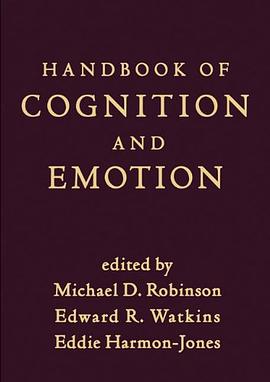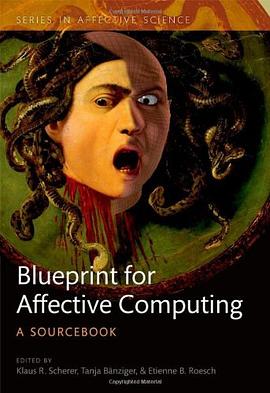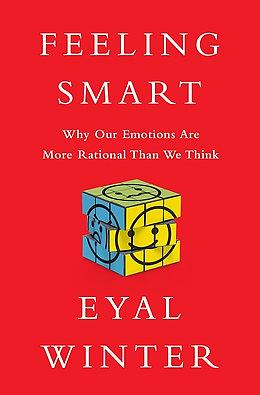
Feeling Smart pdf epub mobi txt 電子書 下載2025
- 經濟學
- 心理學
- PSYCHOLOGY
- :埃亞爾·溫特
- 社科
- 情緒
- RELATIONSHIP
- 成長
- 智慧成長
- 情緒管理
- 自我提升
- 認知訓練
- 心理洞察
- 學習方法
- 思維能力
- 專注力
- 自信建立
- 情感智慧

具體描述
Which is smarter—your head or your gut? It’s a familiar refrain: you’re getting too emotional. Try and think rationally. But is it always good advice?
In this surprising book, Eyal Winter asks a simple question: why do we have emotions? If they lead to such bad decisions, why hasn’t evolution long since made emotions irrelevant? The answer is that, even though they may not behave in a purely logical manner, our emotions frequently lead us to better, safer, more optimal outcomes.
In fact, as Winter discovers, there is often logic in emotion, and emotion in logic. For instance, many mutually beneficial commitments—such as marriage, or being a member of a team—are only possible when underscored by emotion rather than deliberate thought. The difference between pleasurable music and bad noise is mathematically precise; yet it is also something we feel at an instinctive level. And even though people are usually overconfident—how can we all be above average?—we often benefit from our arrogance.
Feeling Smart brings together game theory, evolution, and behavioral science to produce a surprising and very persuasive defense of how we think, even when we don’t.
著者簡介
Eyal Winter is professor of economics and director of the Center for the Study of Rationality at the Hebrew University of Jerusalem, one of the world's leading institutions in the academic study of decision making. He served as chairman of the economics department at Hebrew University and was the 2011 recipient of the Humboldt Prize, awarded by the government of the Federal Republic of Germany. He has lectured at over 130 universities in 26 countries around the world, including Harvard University, Stanford University, Princeton University, the University of California at Berkeley and the University of Cambridge.
圖書目錄
Introduction: What Is Rationality? p. xv
Part I On Anger and Commitment
Chapter 1 What Is the Point of Getting Annoyed? Emotions as a Mechanism for Creating Commitments p. 3
Chapter 2 Why We Love Those Who Are Cruel to Us: Stockholm Syndrome and the Story of the Nazi Schoolteacher p. 12
Chapter 3 Emotional Impostors, Empathy, and Uncle Ezra's Poker Face p. 18
Chapter 4 Game Theory, Emotions, and the Golden Rule of Ethics p. 31
Chapter 5 The Prisoner's Dilemma in Repeated Interactions: Do Drawn Knives Increase Cooperation in the World? p. 38
Chapter 6 On Decency, Insult, and Revenge: Why Don't Suckers Suffer from Disgust? p. 51
Part II On Trust and Generosity
Chapter 7 On Stigmas and Games of Trust: Why Did the Bees Commit Suicide? p. 61
Chapter 8 Self-Fulfilling Mistrust p. 69
Chapter 9 Cultural Differences, Palestinian Generosity, and Ruth's Mysterious Disappearance p. 73
Chapter 10 Collective Emotions and Uncle Walter's Trauma p. 87
Chapter 11 The Handicap Principle, the Ten Commandments, and Other Mechanisms for Ensuring Collective Survival p. 98
Chapter 12 Knowing How to Give, Knowing How to Receive: The Full Half of the Cholent p. 110
Part III On Love and Sexuality
Chapter 13 The Spray That Will Give Us Love: On the Hormone that Creates Trust and Neutralizes Suspicion p. 117
Chapter 14 On Men, Women, and Evolution: Testing the Myths p. 121
Chapter 15 Make Me a Match Made in Heaven: Reproduction and the Mathematics of Romance p. 145
Chapter 16 From Cavemen Flutes to Bach Fugues: Why Did Evolution Create Art? p. 160
Part IV On Optimism, Pessimism, and Group Behavior
Chapter 17 Why Are We So Negative? The Arithmetic of Emotions p. 167
Chapter 18 On Arrogance and Humility: The Norwegian Professor's Syndrome p. 173
Chapter 19 Overconfidence and Risk: The "It Can't Happen to Me" Syndrome p. 178
Chapter 20 The Voice Is Herd: On the Sources of Herd Behavior p. 189
Chapter 21 Team Spirit: The Paradox of the Generous Bonuses and the Lazy Workers p. 201
Part V On Rationality, Emotions, and Genes
Chapter 22 Irrational Emotions p. 219
Chapter 23 Nature or Nurture: What Is the Source of Rational Emotions? p. 228
Epilogue p. 233
Notes p. 239
Index p. 247
· · · · · · (收起)
讀後感
《狡猾的情感》| 韩巍解读 关于作者 埃亚尔·温特,著名经济学教授,担任耶路撒冷希伯来大学理性研究中心的主任。曾经获得过德国联邦政府颁发的洪堡奖,这个奖是专门授给那些在教学和研究工作上获得杰出国际声誉的科学家和学者的。温特拥有以色列和德国双重国籍,不但曾经担任...
評分为什么在我们日常生活中,只要是和人打交道的行为,如果想要达到一个很好的效果,就要给对方营造一个舒服的心理氛围? 为什么善于抓住人们情感心理需求往往会更有助于我们实现目标? 为什么真正的亲密关系,除了两个人互相关心、投入感情,还需要双方都承担一定的情感投入...
評分我们常常被告诫“不要太过感情用事”,尤其是在面对重大决策时,应该多进行理性思考与分析,似乎情感因素总是会在决策中帮倒忙。然而事实真的是这样的吗?那么我们如何解释斗志昂扬的销售人员通常会比情绪低落的更能拿下客户,成功签下更大的单子呢?又比如钉子户的愤怒往往能...
評分一看到这本书的标题“狡猾的情感”,我就下意识认为这是一本关于心理学的书maybe是从情感上来解释各种心理学现象,但我再往下看,发现有八位诺贝尔经济学奖得主联袂推荐此书,我又恍然大悟,这决不是只介绍心理学那么简单,在副标题“为何愤怒、嫉妒、偏见让我们的决策更理性”...
評分文/Eva77 最初我以为《狡猾的情感》应该是一本心理学书,但拿到后才发现是一本经济学书藉。这本书的信息量实在很大,粗读了一遍后又精读了一遍,还是感觉领悟不够深刻,以后会再次重温。 生活和工作中,经常有人会说的两句话:“不要感情用事,冲动是魔鬼;凡事三思而后行。...
用戶評價
觀點有時有些偏頗和個人化,但整部書的價值在對相關話題引入另一種角度的思考
评分觀點有時有些偏頗和個人化,但整部書的價值在對相關話題引入另一種角度的思考
评分觀點有時有些偏頗和個人化,但整部書的價值在對相關話題引入另一種角度的思考
评分觀點有時有些偏頗和個人化,但整部書的價值在對相關話題引入另一種角度的思考
评分觀點有時有些偏頗和個人化,但整部書的價值在對相關話題引入另一種角度的思考
相關圖書
本站所有內容均為互聯網搜索引擎提供的公開搜索信息,本站不存儲任何數據與內容,任何內容與數據均與本站無關,如有需要請聯繫相關搜索引擎包括但不限於百度,google,bing,sogou 等
© 2025 book.quotespace.org All Rights Reserved. 小美書屋 版权所有


